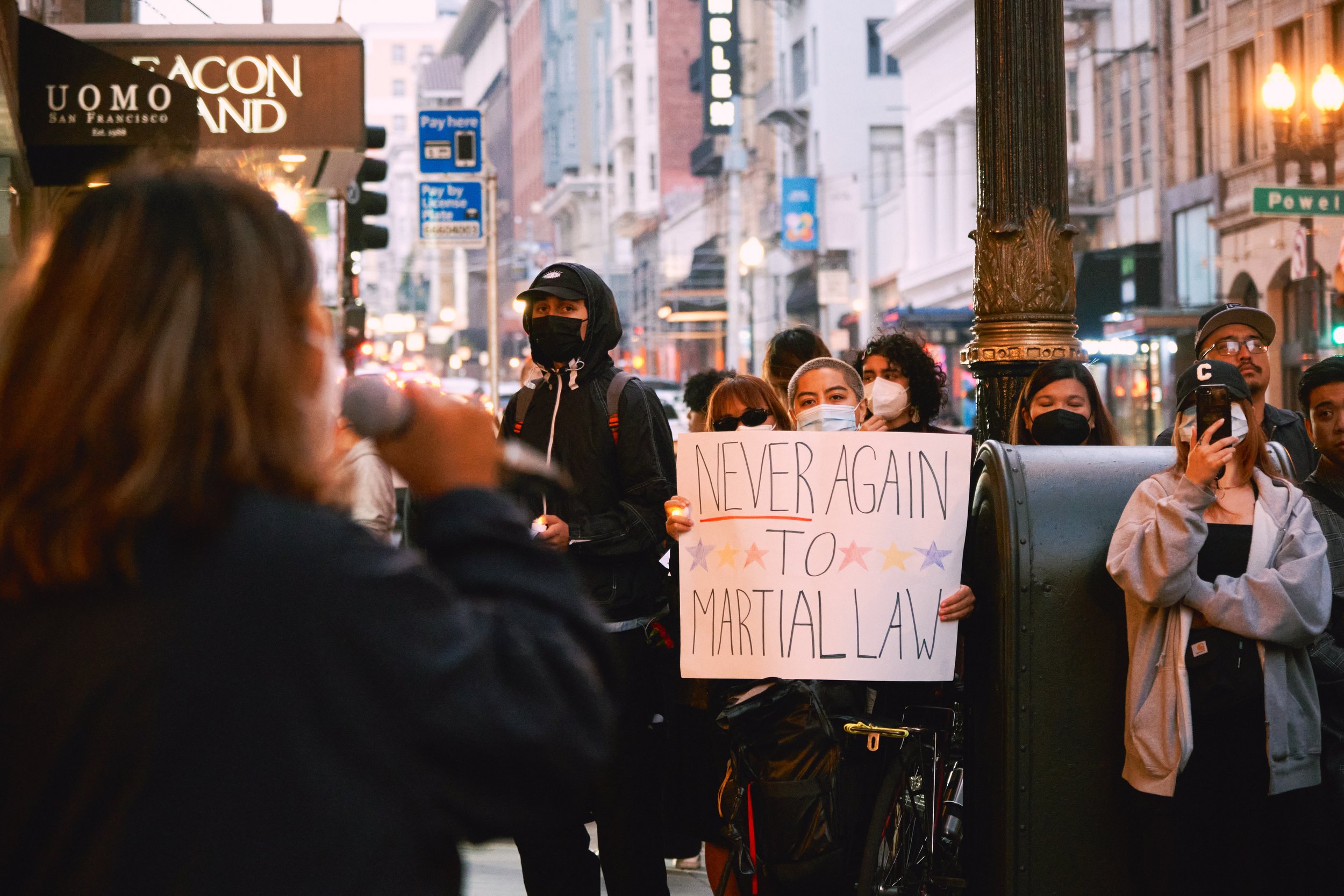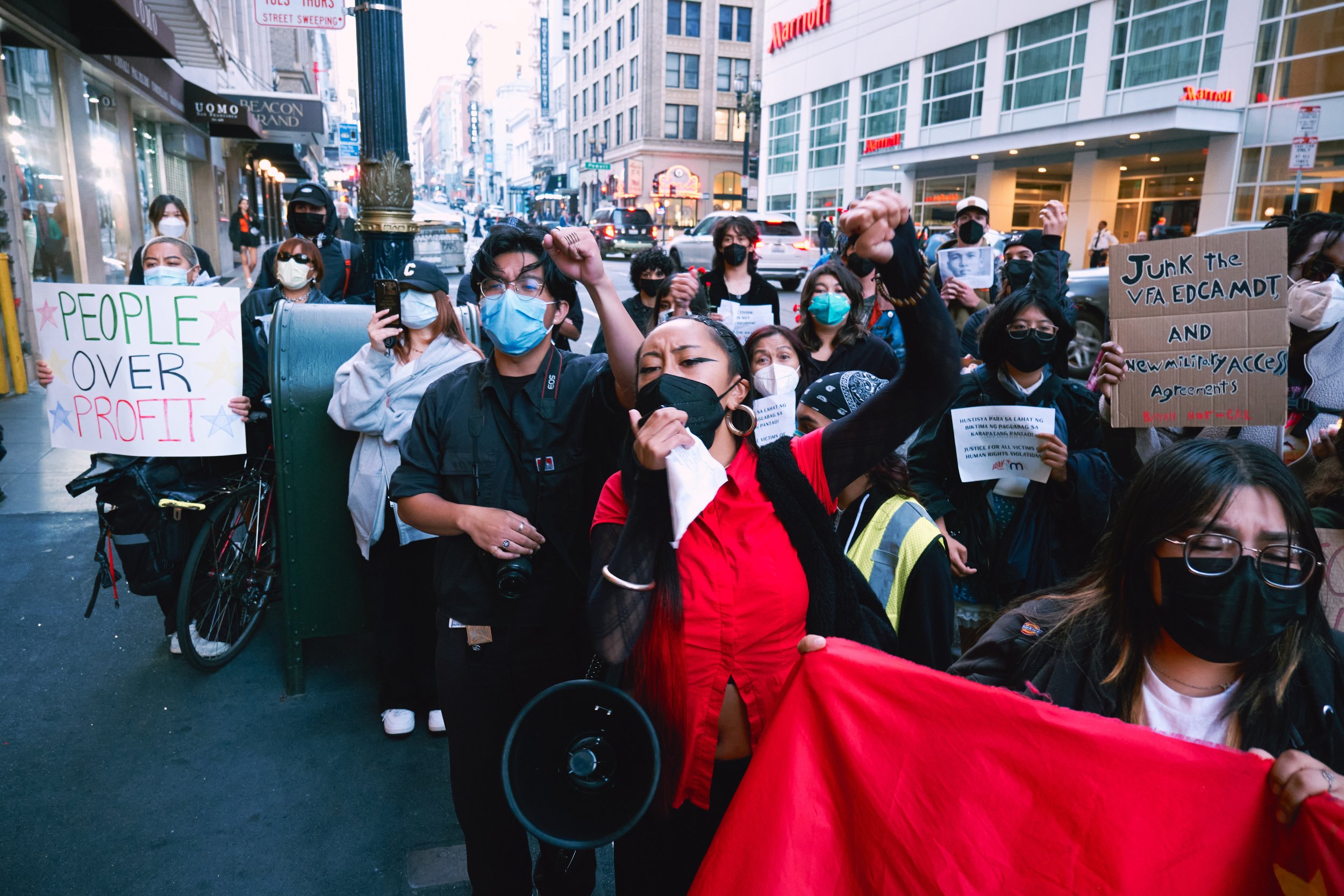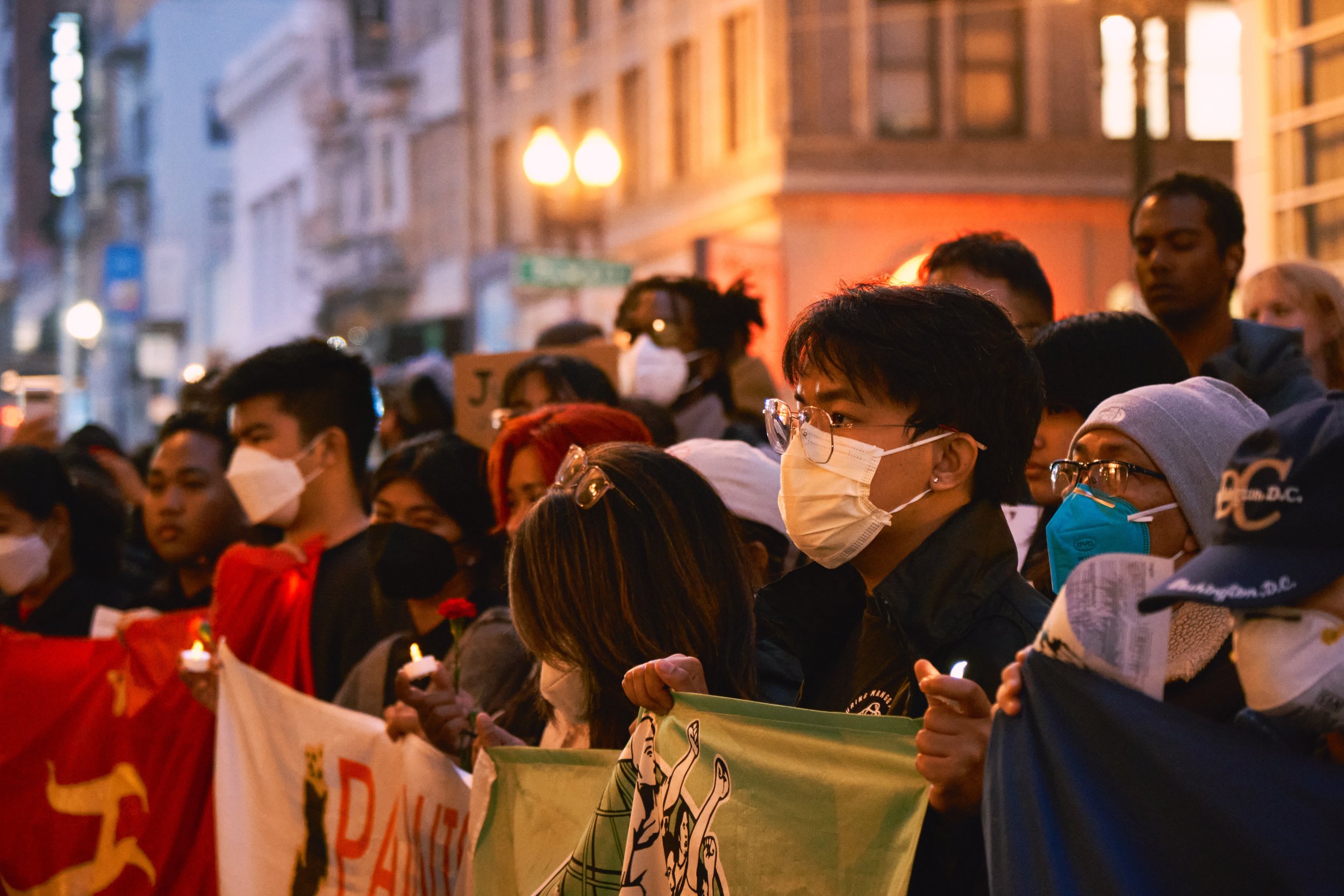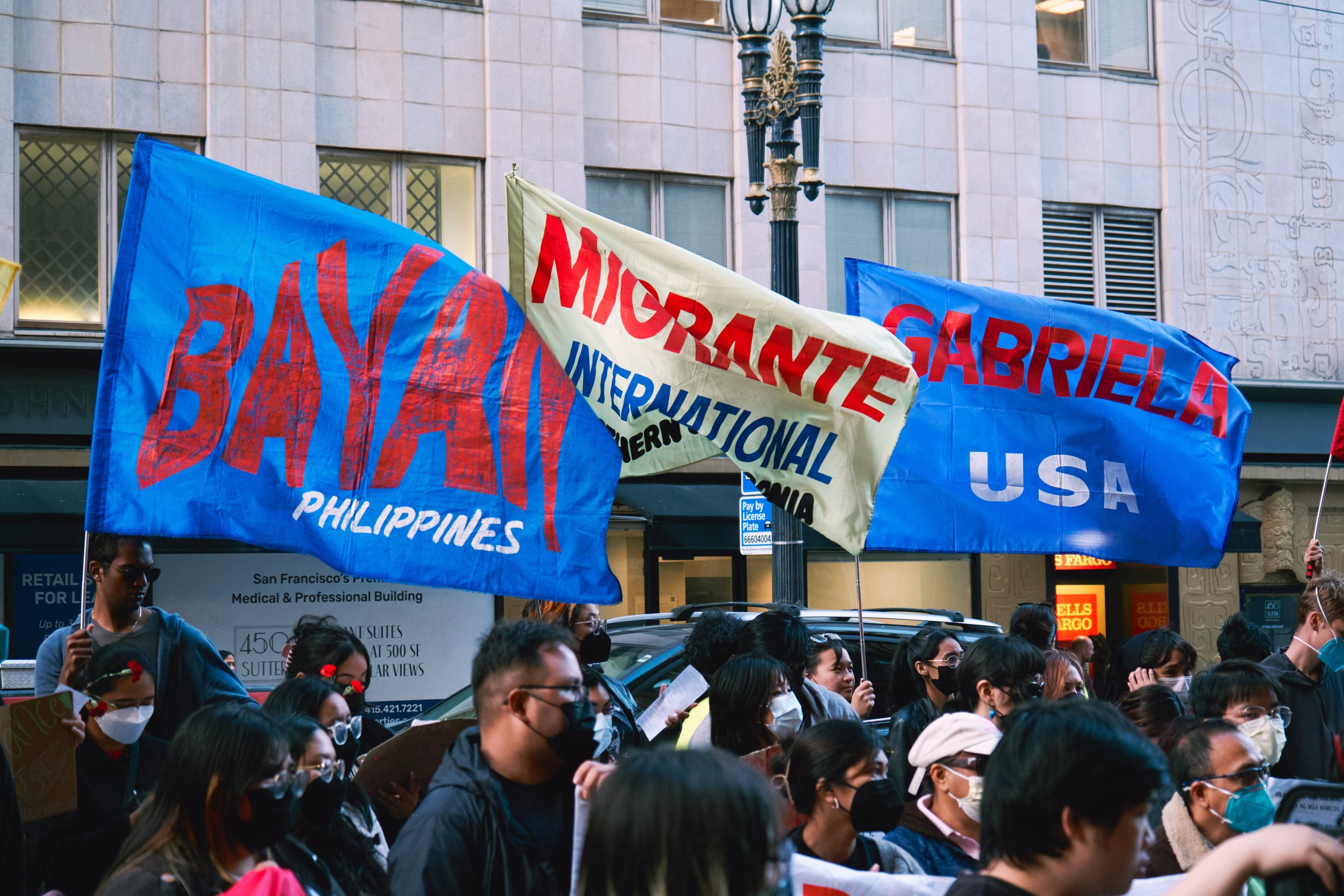52 years after Martial Law: Remembering the past and resisting a new US-backed Marcos regime
By Martial Law 52nd Anniversary Planning Committee (San Francisco Bay Area) September 21, 2024
Photo: Glenn Mercado / Malaya Movement San Francisco
Today marks the 52nd anniversary of the declaration of Martial Law in the Philippines by then-President Ferdinand Marcos Sr. on September 21, 1972. This brutal period in Philippine history spanned 14 years and was characterized by extensive human rights atrocities such as enforced disappearances, torture, and killings of political dissidents. The current Philippine president, Ferdinand Marcos Jr., continues his father’s bloody legacy 52 years later.
Last month, activists James Jazmines and Felix Salaveria Jr. were reported missing, with witnesses testifying that both had been abducted by groups of men and shoved into vans. Jazmines and Salaveria are just two of the nearly 2,600 victims of enforced disappearances since Martial Law; there are currently 15 desaparecidos under Marcos Jr.’s presidency.
Civilians, including children, are indiscriminately made targets of state violence under the Marcos Jr. administration. In May, the International People’s Tribunal tried President Joe Biden, Marcos Jr., and former Philippine President Rodrigo Duterte and found all three guilty of war crimes against the Filipino people for state-sanctioned human rights abuses. Witnesses put forward evidence of shelling of entire villages in Kalinga and Balbalan, including bombings near schools. Families of victims of extrajudicial killings—such as the Fausto family (parents Roly and Emelda, and their children, Ben and Ravin) who were murdered for their ties to a farmers organization—provided damning testimony against the Philippine military’s malconduct and harassment of civilians.
Political repression remains a hallmark of Marcos Jr.’s regime, but unlike his father, Marcos Jr. does not need Martial law to inflict violence on the Filipino people. Rather, arrests without cause, extrajudicial killings, and unlawful detentions of thousands have become business as usual. However, Filipinos have always resisted these unjust regimes.
Photo: Glenn Mercado / Malaya Movement San Francisco
The people’s struggle against Marcos Sr.
To grasp the historical significance of the Philippine anti-dictatorship struggle, Lorena Barros stands at the forefront of the conversation. Deeply involved in student activism and women's rights during the 1960s and 1970s, Barros was a key leader in the underground revolution against the Marcos Sr. dictatorship. Arrested and wounded by constabulary forces in March 1976, she defied the corrupt Marcos Sr. regime, ultimately sacrificing her life at the hands of government soldiers. Barros’ case exemplifies the bloodstained legacy of the Marcos Sr. administration, which ruthlessly repressed activists and silenced critics, claiming innocent lives every day.
Marcos Sr.’s war against activists extended overseas to the United States, as in the case of the brutal murders of labor union organizers Silme Domingo and Gene Viernes. Domingo and Viernes worked tirelessly to cultivate solidarity within the Filipino diaspora, donating thousands to anti-Marcos unions. They co-founded the Seattle chapter of the Union of Democratic Filipinos (Katipunan ng mga Demokratikong Pilipino, or KDP). This revolutionary anti-imperialist socialist organization was instrumental in educating and mobilizing Filipinos and Filipino Americans to not only speak out against the atrocities happening back in the Philippines but also advocate for their rights in the United States.
Domingo and Viernes were assassinated on June 1, 1981, by two Tulisan gang members hired by Marcos Sr. Their deaths exposed the violent tactics and lengths that the ruthless Marcos Sr. regime would go to suppress resistance in the Philippines and in the United States.
Photo: Glenn Mercado / Malaya Movement San Francisco
Marcos Jr.’s continued repression of activists
Today, the Marcos Jr. regime represses activists through a process called 'red-tagging,' where governmental security forces target activists and journalists through unlawful surveillance, threats, attacks, and killings. Despite the urging of UN rapporteurs and human rights groups to abolish government bodies like the National Task Force to End Local Communist Armed Conflict (NTF-ELCAC) for red-tagging activists, Marcos Jr. has refused to disband it and has even proposed tripling the NTF-ELCAC budget in 2025.
Brandon Lee, an environmental and human rights activist from San Francisco, moved to the Cordillera region of the Philippines, where he was red-tagged by the Philippine government for his work as a community journalist, paralegal, and Indigenous rights advocate. On August 6, 2019, the Philippine military shot Lee in an assassination attempt outside his home in Ifugao. Five years later, there has yet to be any accountability, investigation, or justice served.
It is more critical than ever that we, as Filipinos resist the Marcos Jr. regime. While the Marcos family tries to downplay and erase the history of Martial Law, we must be vigilant in shedding light on the Marcos family’s continued crimes against humanity.
Photo: Glenn Mercado / Malaya Movement San Francisco
Remembering Martial Law and fighting for human rights in the Philippines
The Philippines remains the deadliest country in Asia for environmental defenders for the 11th year in a row, as well as one of the most dangerous countries for journalists and trade unionists. Yet, the United States continues to provide military aid to the Philippines without human rights restrictions or accountability.
In July 2024, U.S. Secretary of State Antony Blinken and Defense Secretary Lloyd Austin met with Marcos Jr. to strengthen the decades-long alliance between the two countries and promise $500 million in new military funding to the Philippines. Additionally, the Philippine Enhanced Resilience Act (PERA), introduced in April, proposes $2.5 million in military funding to the Philippines over the next five years.
On this 52nd anniversary of Martial Law, we demand an end to the US-backed human rights violations in the Philippines. We call for the passage of the Philippine Human Rights Act (PHRA), which would suspend U.S. military assistance to the Philippines until human rights violations by state forces cease and those responsible are held accountable. We do not want our tax dollars being used to fund human rights crimes in the Philippines. Instead, our tax dollars should be used for pro-people services and resources, such as accessible healthcare, education, housing, and more.
We must take action so that the bloody history of Martial Law does not continue! Never again to Martial Law! End U.S.-backed war crimes under the Marcos Jr. regime! Stop the killings in the Philippines!




